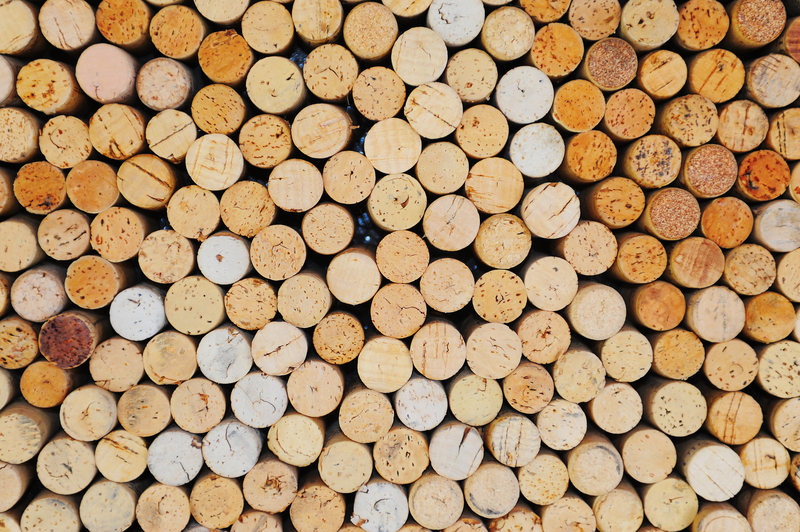How to Cut Costs When Dealing With Bulky Waste Items
Disposing of large, cumbersome items can be a frustrating and expensive process. If you're looking for smart, cost-effective ways to remove bulky waste from your home, business, or renovation site, you're not alone. With rising landfill charges and limited municipal collections, learning to recycle, reuse, or dispose of things like furniture, appliances, and garden waste efficiently will not just save money but can help the environment, too. Discover the most effective, budget-friendly tips for managing your bulky waste items in 2024.
Understanding Bulky Waste
Bulky waste refers to items that are too large to be collected by regular garbage collection services. These can include:
- Old furniture (sofas, mattresses, wardrobes)
- Appliances (fridges, washing machines, ovens)
- Garden waste (branches, large plant pots, fencing)
- Renovation debris (carpets, doors, bathtubs)
Because of the size, weight, or hazardous components of such items, they often come with additional disposal costs. But with a little planning and awareness, you can significantly reduce your expenses.

Practical Strategies to Cut Bulky Waste Disposal Costs
1. Assess and Plan Your Waste Removal
Before taking any action, take stock of all your bulky items. Make an inventory--this ensures you choose the most suitable removal method. Ask yourself:
- Are any items reusable or repairable?
- How many trips would it take to dispose of everything yourself?
- Could combining disposal with your neighbors save money?
- What are the local council's bulky waste policies?
Planning ahead is the first step towards saving money.
2. Reuse, Sell, or Donate Before You Dispose
Many items people think of as waste are still usable. Donate gently-used furniture or appliances to:
- Local charities (Salvation Army, Goodwill)
- Homeless shelters or organizations furnishing homes for those in need
- Online communities (Facebook Marketplace, Craigslist)
- Freecycle groups in your area
Selling large items can also offset your costs. Take clear photos and write honest descriptions. Sometimes someone will even pick up the item for free!
Donation and sales not only help people, but reduce the total waste you pay to have removed.
3. Take Advantage of Council or Municipality Collection Services
Most cities offer bulk waste pickup several times a year, either for free or a nominal fee. Check your municipality's website for:
- Designated collection dates
- Size and quantity limits
- Types of items accepted
- Booking requirements (some require advance notice)
Maximize your allocation by combining your items with a neighbor's or storing bulky waste for the next scheduled pickup. Always follow your area's rules to avoid fines!
4. Use Recycling Centers and Civic Amenity Sites
Most towns have designated recycling centers or Household Waste and Recycling Centres (HWRCs) where bulky waste can be dropped off for free or at a lower price than using a private hauler. These sites often accept:
- Furniture
- Appliances (sometimes with hazardous component fees)
- Yard and green waste
- Construction and demolition debris
If you have access to transportation, make bulk waste runs during off-peak hours to save time. Fill your vehicle to capacity--don't waste a trip with half-empty loads!
5. Hire a Skip or Dumpster - the Smart Way
Sometimes, renting a skip or dumpster is unavoidable, especially for renovation or clearance projects. But to cut costs on bulky waste removal, follow these tips:
- Book the smallest size you need. Over-estimating means paying for air space.
- Share with a neighbor or split costs on a community project.
- Don't mix prohibited items--hazardous waste may trigger extra fees.
- Compact your waste: dismantle furniture and break down items to maximize space.
- Ask the provider if they offer cheaper rates for off-peak delivery or pickup.
Pro tip: Some companies offer "man and van" services that may be cheaper than a skip for fewer items. Always compare quotes!
6. Arrange an Eco-Friendly Junk Removal Service
If you're unable to transport items yourself, professional junk removal services can be cost-efficient, especially when dealing with multiple or very large bulky waste items. To save more:
- Get quotes from at least three companies
- Be specific about your load--photos help companies quote accurately
- Confirm whether recyclables are separated for reduced fees
- Look for companies that offer discounts for multiple items or scheduled pickups
Choose a service committed to recycling or donating items. It helps the environment and may qualify you for a discount.
7. Break Down Large Items Yourself
Bulky items often take up more space than they should. Disassemble furniture: remove legs from tables, break down bed frames, slice up old mattresses, or flatten cardboard. This will help:
- Make items easier and cheaper to transport
- Reduce skip or landfill fees if based on volume
- Allow items to be repurposed or reused more easily
Remember to use proper tools and safety gear. Dispose of screws, nails, and hazardous materials responsibly.
8. Organize a Neighborhood Bulky Waste Collection Event
Shared costs are always lower costs. If several homes in your area need bulky item disposal, approach local waste companies for a community discount or ask the council for a group collection. Benefits include:
- Bulk discounts for shared removal
- Fewer vehicle trips (cuts down environmental impact)
- Strengthened community ties
Coordinate dates and types of items in advance. This approach works especially well after house clearances or block-wide refurbishments.
Bulky Waste: Tips for Specific Item Types
Furniture
- Upholstered furniture: Always check for fire safety labels--many charities or reuse organizations cannot accept sofas or chairs missing them.
- Remove legs or arms to fit in your car or skip.
- Recover wood from broken furniture for DIY projects or fuel (where permitted).
White Goods & Appliances
- Some retailers offer free removal when delivering new appliances--ask when purchasing.
- Recycling centers may charge for refrigerators or air conditioners due to refrigerant gases; check fees before visiting.
- Sell or donate working items--many organizations need fridges, washing machines, and microwaves.
Garden Waste & Green Debris
- Compost small branches & leaves at home to reduce the amount requiring removal.
- Cut large branches and logs down to manageable sizes for disposal or recycling.
- Contact local landscapers--they may remove items cheaply for mulch or reuse.
Construction, DIY, and Renovation Debris
- Separate metal, wood, and rubble--recycling sorted loads usually costs less.
- See if materials can be donated to building reuse organizations.
- Check for hazardous waste (asbestos, paint, chemicals) and follow all disposal regulations to avoid steep fines.
Additional Ways to Cut Bulky Waste Disposal Costs
1. Avoid Unlicensed Haulers
Never hire someone who is not licensed to carry waste. Unlicensed operators often undercut rates but can illegally dump your waste, leaving you liable for fines. Saving a few dollars today can cost hundreds later--always check credentials.
2. Investigate Local Subsidies or Vouchers
Some councils issue bulky waste disposal vouchers or offer seniors and low-income residents free pickups each year. Look into:
- Seasonal cleanup events with free drop-off days
- Community grant schemes for neighborhood beautification
- Trade-in discounts from local retailers (especially for appliances)
3. Switch to Better Buying Habits
Ultimately, buying quality items built to last and minimizing impulse purchases means fewer bulky items to dispose of in the future. When possible:
- Choose modular or easily repairable products
- Buy secondhand or refurbished goods
- Participate in upcycling or community repair events
By embracing a "reduce, reuse, recycle" lifestyle, you'll cut future costs and help the planet.
Frequently Asked Questions (FAQ) About Bulky Waste and Cost Cutting
- What items are considered bulky waste?
Typically, anything too large for standard municipal bins: furniture, large appliances, mattresses, garden waste, and some fixtures. - How can I avoid landfill fees for bulky items?
Donate usable goods, break items down, or use recycling centers. Organize group collections to split costs. - Can I leave bulky items on the curb?
Only on scheduled collection days and following local guidelines. Illegal dumping can result in hefty fines. - Are there items I can't dispose of with bulk waste?
Yes--no hazardous waste (paint, chemicals, asbestos), tyres, or certain electronics without checking local rules. - Is hiring a skip always the cheapest option?
Not always--compare with "man and van" services and self-hauling to recycling centers. Size, location and local fees vary greatly.

Summary: Key Steps to Cheapest Bulky Waste Disposal
- Plan ahead to maximize municipal collections and recycling options
- Sell or donate items before paying for disposal
- Break down bulky goods to save space and money
- Team up with neighbors for shared removal or skip hire
- Always check council policies for free or discounted collection events
- Avoid illegal haulers to prevent fines and environmental harm
- Consider your future purchases: buy less, buy better, and reduce bulky waste overall
Conclusion: Save Money and the Planet
Dealing with bulky waste items doesn't have to break the bank. From creative reuse and responsible donation to maximizing free municipal services and negotiating with removal companies, the options for reducing costs when disposing of bulky items are extensive. By planning ahead, collaborating with neighbors, and making smart purchasing decisions, you'll not only cut your current removal expenses but also build habits that lower your bulky waste output in the future.
Remember: The best way to reduce bulky waste costs is to think before you buy and to reuse or recycle wherever possible.
By following this comprehensive guide for affordable bulk waste removal, you'll protect your wallet and contribute to a more sustainable world. Happy decluttering!
